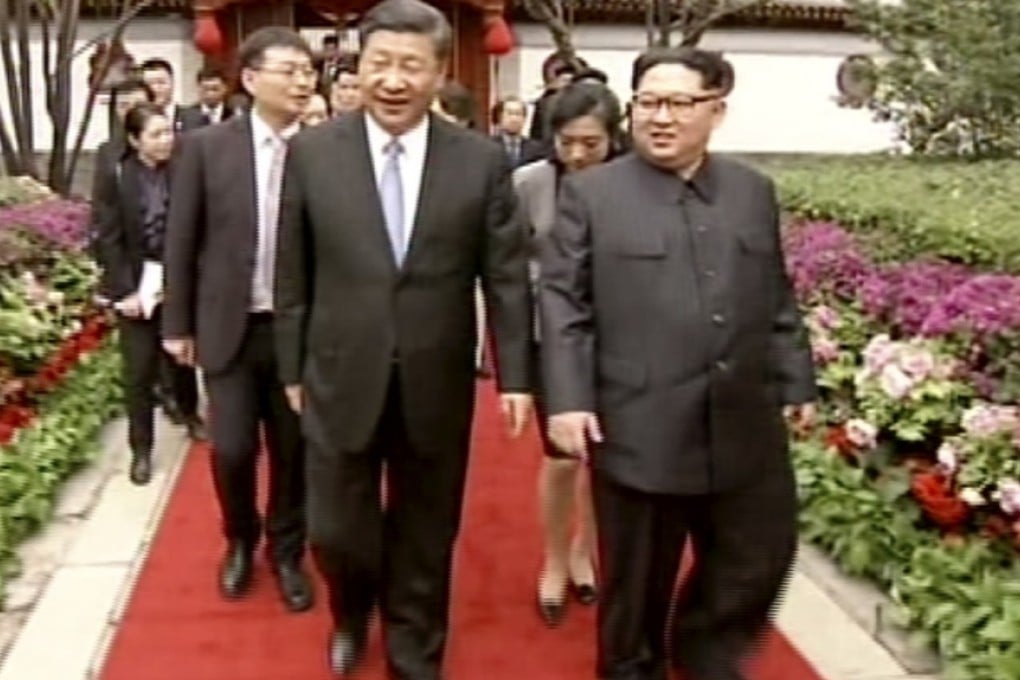Advertisement
The real reasons behind Xi Jinping’s meeting with North Korean leader Kim Jong-un
Donald Kirk says a looming trade war with the US, Japan’s shift to the right, and the continuing challenges to China’s geopolitical position in the region are all part of the calculations that convinced Xi a meeting was necessary. On Kim’s part, easing crippling UN sanctions on his country must be part of his agenda
3-MIN READ3-MIN

There is a certain inevitability about China’s need for North Korea and the North’s need for China. The two may intuitively hate each other, but they can’t stay apart in the regional tug of war. It’s been that way ever since Chinese forces poured into North Korea several months after the North Koreans invaded South Korea in June 1950, to stave off the Americans who had reached the Yalu River that flows between North Korea and China.
Now, as the Chinese and Americans again face one another in a stand-off that seems likely to worsen, President Xi Jinping has received Kim Jong-un on a historic mission from North Korea, despite misgivings about Kim’s nuclear programme. Xi may have hitherto ignored Kim as a supplicant, but ugly realities dictated a change of heart.
One reality is that America, under President Donald Trump, is raising the spectre of a trade war with new tariffs aimed largely at China, on top of military confrontation all around China’s rim. Could it be coincidental that a special North Korean train – not seen in Beijing since Kim Jong-un’s late father Kim Jong-il bowed before China’s leaders in several visits to the Chinese capital – arrived in Beijing so soon after Trump announced his tariffs?
Advertisement
And why would Xi receive any delegation from North Korea if he was not also interested in shoring up China’s defences along a vulnerable frontier that remains a barrier to US power? US forces again teaming up with the South Koreans in annual war games is just one annoyance. China also has to consider Japan’s moves to the right under Prime Minister Shinzo Abe, who has advocated revising Japan’s post-war “peace” constitution banning Japanese forces from joining in foreign wars.
Advertisement
China’s concerns, all around its periphery, are most clearly acute in the South China Sea to which the Chinese steadfastly claim rights of ownership. The Chinese media issued taunts as the US aircraft carrier Carl Vinson showed the American flag in those waters after calling at Da Nang, the port city in central Vietnam where US marines were headquartered during the Vietnam war.
Advertisement
Select Voice
Select Speed
1.00x